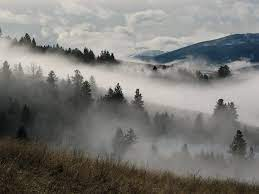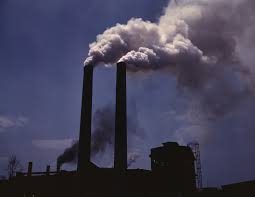Delhi Air Pollution: The entire NCR including Delhi is currently covered with a blanket of smog. At the beginning of November, a mild cold has also started. In such a situation, the increasing smog has become a cause of trouble for the people. With the onset of the cold, pollution has also started increasing in the state. Now people are suffocating in the poisonous air. However, people are still confused about whether this sheet spread in the air is fog or smog. If you are also confused about this, then today through this article we will tell you what is the difference between fog and smog and which is harmful to health.
What is fog?

Fog, also known as Kohra in Hindi, is usually seen in cold weather. In winter, there is often fog in the sky. Fog is very small droplets of water present in the air, which are white. Due to the fog present in the sky, a white sheet is often seen all over the place in winter, due to which the visibility gets reduced. However, it is not harmful to health nor does it cause any problem in breathing, but fog can make you feel more cold.
What is smog?
Unlike fog, smog is a mixture of smoke and pollution, which is very harmful to health. Smog occurs due to the presence of high amounts of harmful gases like sulfur dioxide (SO2) and benzene in the air, which appear light gray. This has a very negative impact on health. Visibility is reduced due to smog. According to WHO, smog also increases the risk of eye irritation, stroke, heart disease, lung cancer, and diseases related to the respiratory system.
Adopt these methods to avoid smog –
It is very important to take care of health amidst increasing smog in the environment. In such a situation, you can protect yourself even from poor-quality air by following the tips given by the American Lung Association.

- Avoid exercising outside when pollution levels are high. When the air is bad, work out indoors.
- Use less energy in your home. Excessive use of electricity and other sources of energy increases air pollution.
- To reduce air pollution, use public transport instead of private vehicles. Apart from this, you can also walk or use a carpool.
- Avoid staying outside for long periods. Stay indoors, especially in the morning and evening when pollution is at its peak.
- If you're going outside, use a high-quality mask, like an N95 or N99, to help filter out harmful pollutants.
- Keep the windows and doors of the house closed, so that polluted air does not come inside the house. Also, use air purifier to remove pollutants from the house.
Disclaimer: The advice and suggestions mentioned in the article are for general information purposes only and should not be taken as professional medical advice. If you have any questions or concerns, always consult your doctor.
Picture Courtesy: Google










